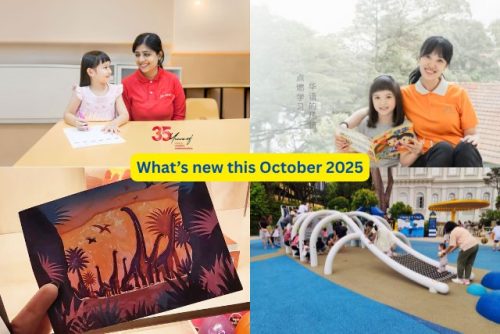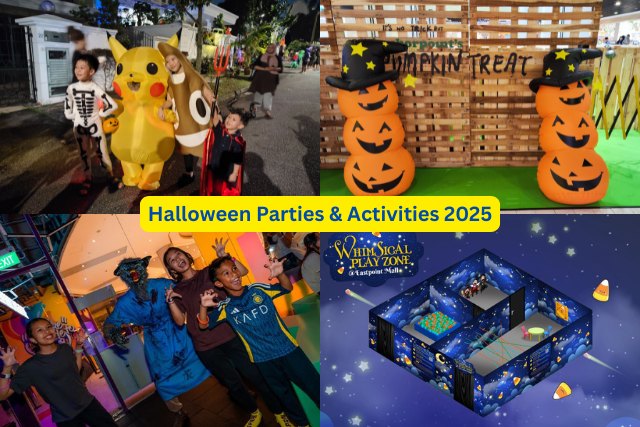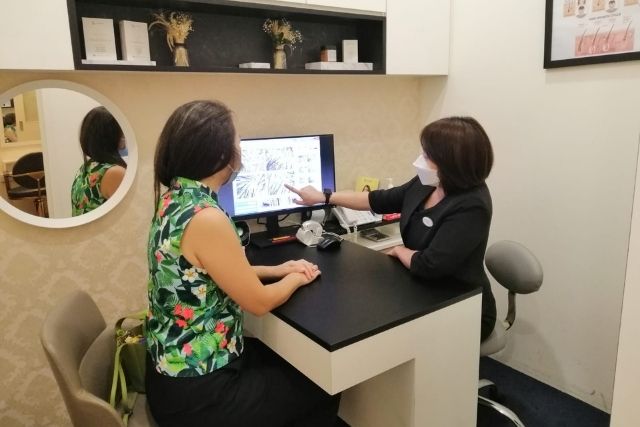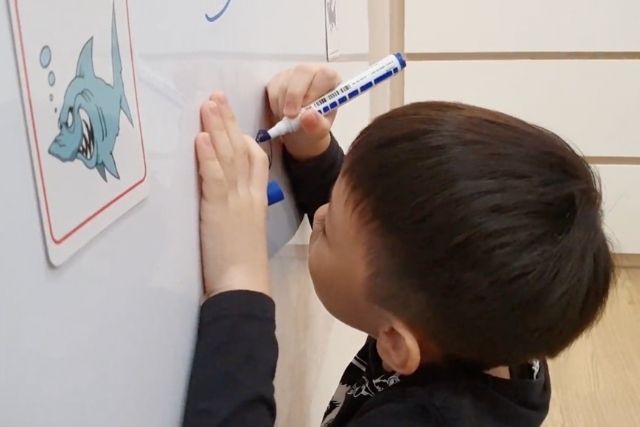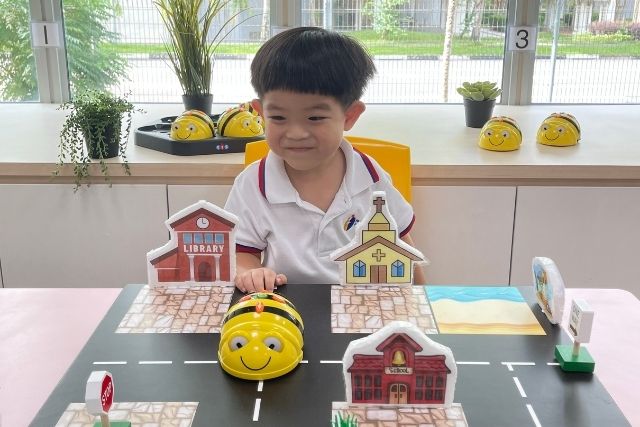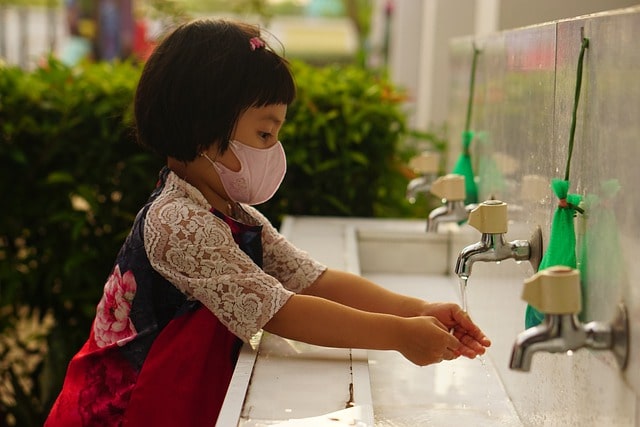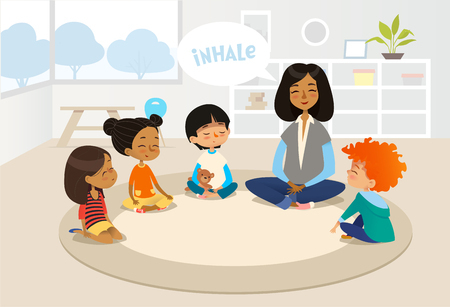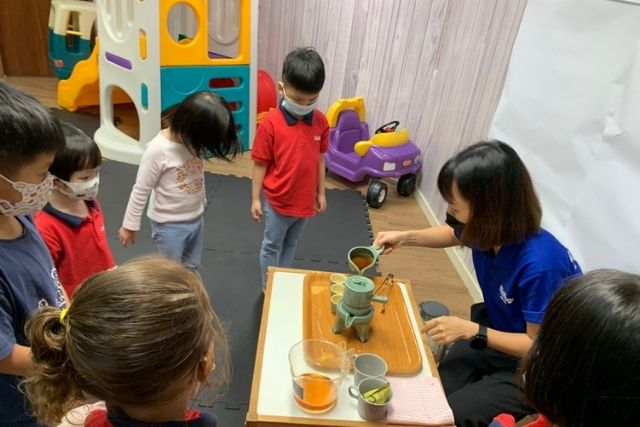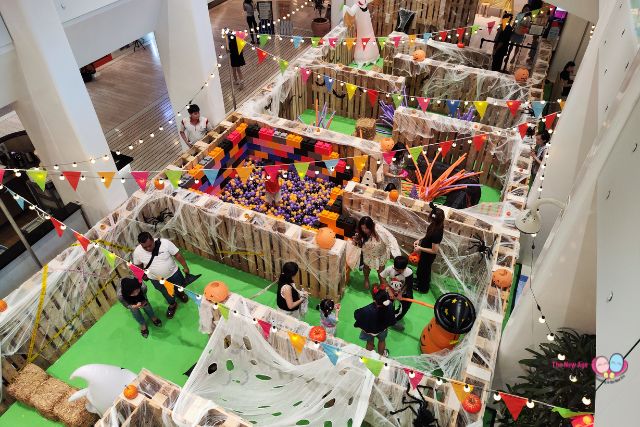There are many differing perspectives in relation to how children should be raised in the early years and that can lead to some myths on how children develop and learn. It is useful for parents to take on a supportive approach by understanding the child’s perspective and using evidence that research is telling us in terms of child development and learning during these critical early years.
Research tells us that over 90% of a child’s brain is developed by the age of five. A child’s experiences in the early years will undoubtedly have a great influence on their long-term holistic development. Positive childhood experiences and memories will nurture a child into a confident adult, while adverse childhood experiences can potentially lead to negative impacts on their physical and mental wellbeing.
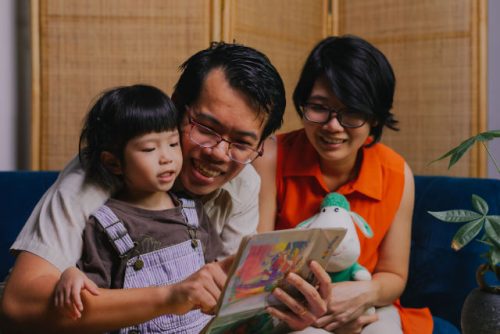 Image credit: KidSTART
Image credit: KidSTART
Play provides for positive early experiences and many parents have misconceptions that play is a waste of time. On the contrary, for young children, play is never a waste of time. Play provides children a natural way to learn and make sense of the world. A child at play is a child at work as this is the way they learn. Play provides and fulfills children’s innate desire to explore, problem-solve, discover, observe, care, negotiate and these characteristics help build a confident child. In short, play supports and promotes the development of skills in the respective domains of development, be it gross motor, fine motor, social, language skills or cognitive skills; these are skills that the child needs for lifelong learning.
Let’s take a look at some common parenting myths about early childhood development, and what parents can do instead to support their children and give them a good start in life:
Infant (Age 0 – 12 months)
Myth 1: There’s no need for me to do anything with my baby as they won’t remember anything
Early experiences and quality daily interactions with caregivers are important for brain development as it lays a strong foundation for all future learning, behaviour and health. They learn through their senses and begin to experience emotions, like happiness and sense of trust, as early as infancy.
You can help your baby’s development by nurturing a close relationship with them. Simple interactions like playing and talking with babies will help them grow and learn about the world around them!
Myth 2: Holding and hugging my baby will spoil them
Don’t worry about giving your baby too much attention as they will need a lot of love from you to develop a sense of security and trust in their parents in the first few months! When you respond calmly and consistently to their cries, your babies will feel secure – thereby helping them form healthier relationships when they’re older.
So, feel free to indulge yourselves! Caring, holding, hugging, smiling, caressing, soothing and relating with focused attention all mean a lot to babies – and to you too!
Toddler (12 months – 3 years)
Myth 1: It is not necessary to talk to young children when they have not grasped linguistic skills yet
Did you know that your children can build receptive language abilities just by listening to you talk and use different words? Though toddlers cannot speak as well yet, talking to them will greatly improve their language and communication skills and help them in their cognitive development too! So, go about having your quality everyday interactions during your routines with your child, talking about what you are doing, telling stories – all complete with interesting facial expressions!
We understand that it can feel one-sided and awkward when they do not reply – but if you observe closely, they respond by making eye contact, cooing, smiling, moving, or even crying!
Myth 2: Young children only start learning when they start attending preschool
Beyond school, children are also learning through everyday interactions with their families and surroundings – even from infancy! By involving them in everyday routines and play, our children have the opportunity to learn and practice social-emotional, thinking, language and physical skills that support children’s overall development. This can be through allowing them to do simple chores such as watering the plants, or by bringing them out for weekly grocery runs!
Preschoolers (3+ years – 6 years)
Myth 1: Preschool is not important because my child will only play and not learn anything
Preschool is a great place for young children to learn various skills! On top of gaining new knowledge like numeracy and literacy skills, attending school will also help them become more independent and develop their social skills as they play together with new friends.
From seemingly small moments of interaction like borrowing a crayon from their peers to informing the teachers when they are feeling hungry or the need to go to the bathroom, it is truly the little things that count! Encourage your child to share with you about school and celebrate all the little milestones together!
Myth 2: My child should just listen to adults, as we know better
It is just as important for adults – parents, teachers and significant others – to listen to their children! By showing your child that you’re listening and understanding their needs and what they are expressing, they build up their self-esteem and confidence as they are reassured that their thoughts and ideas are important to you. We understand that it may be frustrating when they talk back but listening to what they have to say and giving suggestions later on to help them understand why we may make the decisions we make are all valuable learning opportunities for them as well!
By taking small but significant steps to support your children’s development in the first few years, you may find yourself surprised by how much your child actually understands the world around them. Take for example, a KidSTART parent who shared about his parenting journey with KidSTART, and how the growth and development of his daughter bears witness to the value of the early years.
What we do with our children today will make them who they are tomorrow. Let’s give our children a good start in life.
By KidSTART, as part of A Good Start initiative.
KidSTART Singapore is a dedicated agency that provides upstream support to eligible pregnant mothers and children up to 6 years old. As a national programme, KidSTART empowers low-income families to build strong foundations for their children and foster positive child development outcomes by supporting caregivers with guidance on child development and monitoring the developmental progress of children from birth onwards.
#AGoodStart is KidSTART’s public awareness initiative on the importance of supporting children in their early years.
* * * * *
Like what you see here? Get parenting tips and stories straight to your inbox! Join our mailing list here.
Want to be heard 👂 and seen 👀 by over 100,000 parents in Singapore? We can help! Leave your contact here and we’ll be in touch.























